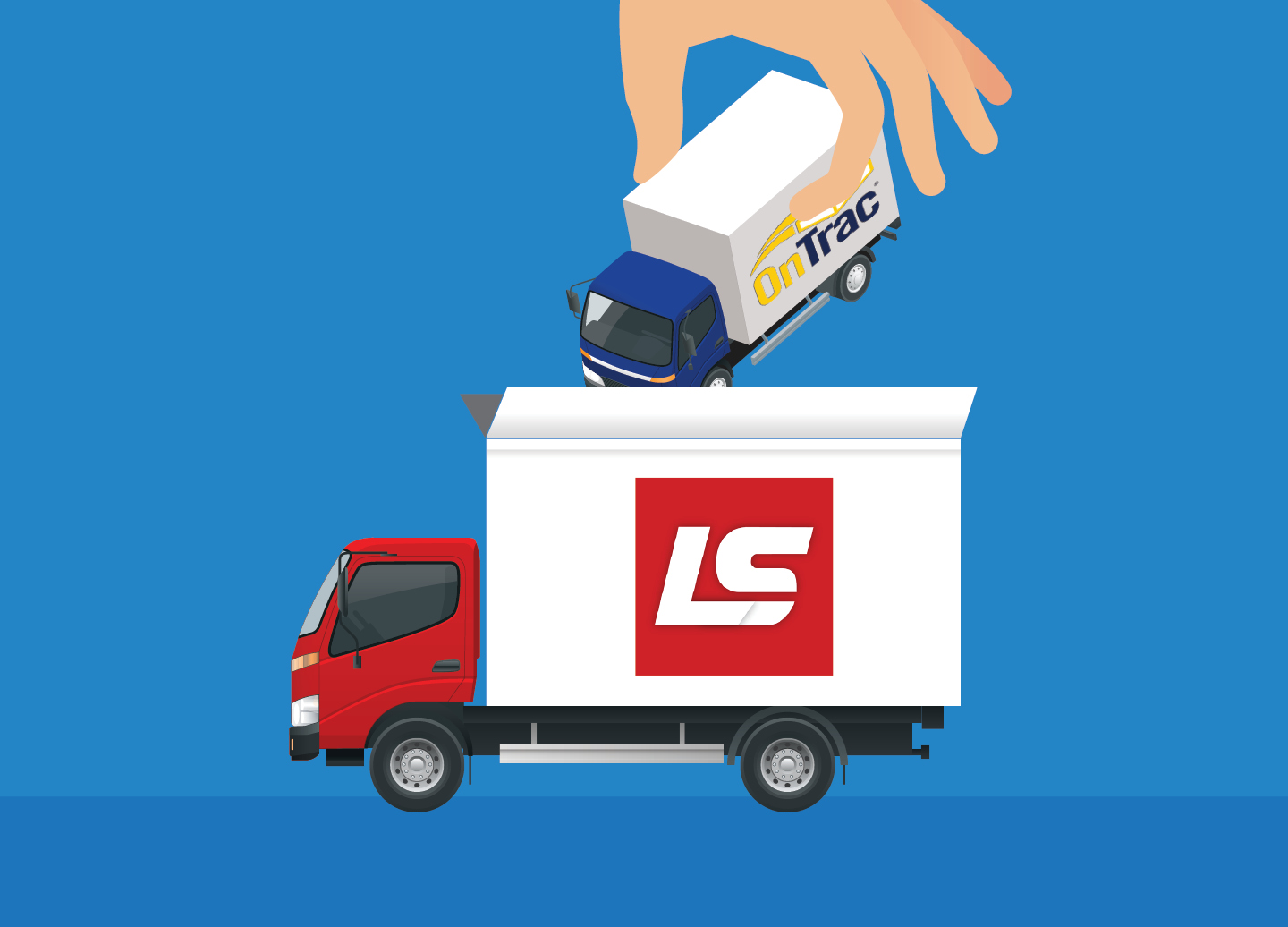ProShip shipping experts are sharing what is on the supply chain horizon in 2022 and beyond.
Peak 2021 is here and shippers have experienced another installment of the new normal that’s been lingering since March of 2020. While experts can forecast probable industry conditions, market volatility serves as one of the most impactful and essential of all freight analytic data that shippers and carriers need to monitor. Changes and fluctuations are constant in logistics, no matter the industry. Even a short warning on shifts within the market and customer demand changes can help shippers roll with the punches when it comes to capacity.
Hints experts can give us on carrier volatility
ProShip’s knowledgeable team of logistics and IT experts share their thoughts below. (Profiles for all our experts are included at the end of the questions.)
Expert Question: Do you think capacity issues will continue in 2022? Will they speed up, stay linear or slow down?
ProShip Panel: Capacity constraints are here to stay in 2022. There may be fluctuations for better or worse, depending on the industry and the carrier, but by and large, the global supply chain is still congested, and betting on a significant reduction in the backlog in 2022 is perhaps not wise.
Interestingly enough, experts caution that the capacity constraints may not be felt equally across all shippers. Industry insiders predict there could be a 1-million parcel per day constraint to a 1-million parcel per day surplus. Given the size of the shipping market, that is a very narrow margin. What this means is that shippers could be struggling with a constraint from a carrier one day but not the next.
We can expect the capacity constraints to ease over a longer timeline. With the labor shortage of truck drivers and other workers compromising the movement of goods, the backlog of supply and port congestion will take time to rectify. Any natural disaster could cause a regional snarl that exacerbates the issues. For example, the ice storms in Texas earlier in the year shut down plants and caused additional supply problems.
Check out our podcast, ProShip ParcelCast, to listen to our episode with LPF Spend Management about leveraging specific strategies to manage carrier concerns.
Expert Question: If capacity issues were to slow down, what happens to a shipper’s “11th carrier” (or least used carrier)?
ProShip Panel: Over the course of the pandemic, shippers have formed new relationships with other carriers and seen their capabilities. Shippers should evaluate the performance of carriers they have leaned on recently. One carrier may be best in servicing a particular lane or shipment type, another carrier may shine in a specific region. All in all, companies should evaluate their technological systems and routing logic rules that award volume to the most appropriate carriers. Flexibility here is absolutely key.
Expert Question: Do you see more carriers being acquired, similar to the LaserShip/OnTrac deal? What happens next?
ProShip Panel: We will definitely see more consolidation with carriers in the form of mergers, acquisitions, and partnerships. The LaserShip/OnTrac deal is a historic event and a new precedent that will challenge the decades-long status quo in which the parcel market is dominated by the large national carriers and supplemented by more myopic regional carriers who have not shown an initiative to combine their collective capabilities. While many are likely to be quieter than the LaserShip/OnTrac deal, we will presumably continue seeing quite a few new carrier startups, whether in smaller regional spaces or as postal aggregators.
Another recent signal event is the UPS purchase of Roadie to augment their same-day and non-traditional delivery options. We have also seen and will continue to see newer entrants fail as winners and losers emerge. Only time will tell which few will make enough of an impact to survive, and either be acquired or live past the easing of capacity constraints.
Beyond carrier acquisitions, third-party consolidators and brokers are going to gain steam in the parcel shipping world. As shippers look to expand their carrier reach, relying on capacity experts to leverage cost and flexibility will become relevant.
[Explore more about Carrier Diversification]
Expert Question: How much will technical flexibility matter in the coming months, no matter if capacity constraints are here to stay, or will ease?
ProShip Panel: Flexibility is key to having a viable supply chain continuity plan. Shippers can experience volatility for any number of reasons in the future:
- Spikes in the pandemic
- Natural disasters
- Market shifts
- Geo-political events
- Failure of new carrier partners, etc.
One of the most important tools is technology that enables shippers to shift volume across carriers quickly and easily in reaction to such events. For more on the industry-leading parcel shipping solution, check out ProShip multi-carrier shipping software.
Expert Question: Any advice to a mid/high volume shipper looking to navigate the years ahead?
ProShip Panel: Don’t get caught off guard again! Formulate a plan that treats logistics and your end-to-end supply chain in the event of a disruption as importantly as any other part of the business. Evaluate the role of your technology stack in that plan and make any changes needed. In the process, realize that you should also see an immediate return on investment as you optimize freight spend, streamline processes, and replace out-of-date systems.
The second half of this preparation involves your carrier portfolio: diversify your carrier usage. Start that process now, as carriers could freeze new business when you least expect it (for example, LaserShip earlier this year). Also, look to implement a business intelligence and analytics solution to optimize your logistics processes.
[Learn More in our Transportation Business Intelligence Webinar]
Overall, the experts have made it clear that there are 2 significant strategies that can facilitate success in a volatile and complex supply chain market: flexibility and predictability.
To ensure you have a flexible parcel shipping solution, your supply chain software provider should own its own technology (Hint: ProShip has a native front end built by our team)! Some businesses use API connections for their carriers which can work for simple supply chains, but for complex enterprise-level companies, an API-aggregator may not be able to scale with your growth during busy peak season or handle the intricate subtleties that make your business unique. ProShip builds compliant and compatible engines for your parcel strategy. Our robust and advanced systems elevate your distribution, exceeding customer expectations.
The ability to predict accurate forecasts comes from having intelligent data. Business Intelligence (BI) services simplify the process of leveraging that data into actionable insights. Once you regain control of your transportation strategy, optimization and visibility is possible throughout the organization. A comprehensive solution, like ProShip multi-carrier shipping software and enVista MyShipINFO, provide end-to-end visibility into your supply chain, entrusting stakeholders with the ability to reduce both shipping costs and transit time.
[View the MyShipINFO Brochure]
Ready to supercharge your parcel shipping strategy?
To speak directly with the experts at ProShip about your parcel shipping strategy, schedule a discovery call, and find out how ProShip can simplify and optimize your complex parcel shipping challenges.
Expert Panel Bios
Clint Boaz is Senior Sales Engineer for ProShip, where he leverages his expertise to show shippers how integrated multi-carrier shipping solutions can bring efficiencies to their business. Prior to joining ProShip, Clint held various roles at UPS. Clint lives in Tulsa, Oklahoma with his wife and three children.


Dan Scott is the Manager of Research & Development at ProShip, where he guides and facilitates the day-to-day activities of the ProShip development team to help deliver value to ProShip’s customer base. He has been with ProShip for several years primarily as a software developer before attaining his current position. He currently resides in Wisconsin.
Joe Lowrey is the Team Lead for the Customer Success Specialist team at ProShip, where he leverages his industry experience and product knowledge to help enterprise-level customers improve upon their shipping platforms to stay ahead of industry trends. Prior to ProShip, Joe spent 13 years with C.H. Robinson. He lives in the Milwaukee area with his wife and three children.


Justin Cramer is Co-Founder of ProShip, where he has deployed, designed or consulted on over 300 customer solutions within 4 continents and has designed shipping solutions executing more than 1.1 million labels a day. Justin has been on the IT side of shipping since 2001.

 Back to Blog
Back to Blog






